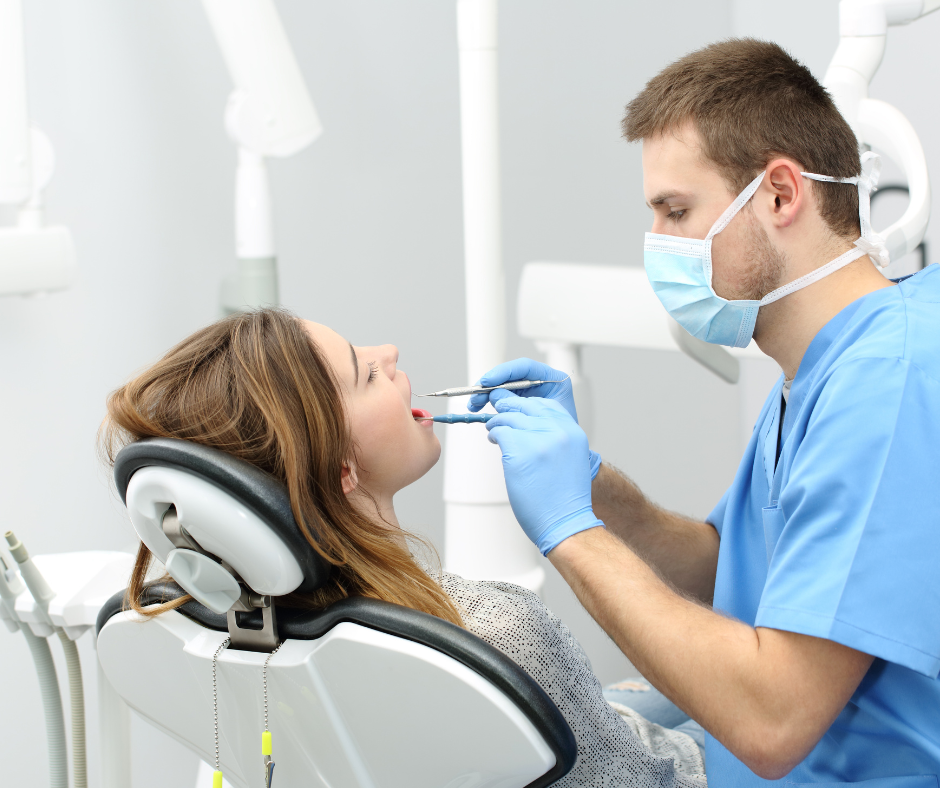As a dental professional focused on patient care, you might not be drilling into all the tax deductions available to your practice. At Vickney & Associates CPA, we've helped numerous dental practices throughout Wisconsin optimize their tax strategies. Here are the must-know tax deductions that can help your dental practice preserve more of your hard-earned income.
Equipment and Technology Investments
Dental practices require significant investments in specialized equipment, creating valuable tax-saving opportunities:
- Section 179 Deduction: Immediately expense up to $1,080,000 (2022) of qualifying equipment purchases
- Bonus Depreciation: 100% first-year deduction for qualifying new and used equipment through 2022
- Regular Depreciation: Deductions spread over the useful life of equipment
- Technology Investments: Practice management software, digital imaging systems, CAD/CAM technology
Strategic timing of these purchases based on your tax situation can significantly reduce your tax burden.
Office Space Deductions
Whether you own or lease your dental office, significant deductions are available:
- Lease Payments: Fully deductible as business expenses
- Mortgage Interest and Property Taxes: Deductible for practice-owned property
- Building Depreciation: Typically over 39 years for commercial property
- Leasehold Improvements: Potentially eligible for accelerated depreciation
- Cost Segregation Studies: Identify components of owned buildings that qualify for shorter depreciation periods
For owned properties, consider a cost segregation study to accelerate deductions for components like specialized electrical and plumbing systems specific to dental practices.
Continuing Education and Professional Development
Staying current in dentistry requires ongoing education, which creates tax advantages:
- Continuing Education Courses: Deductible when related to current practice
- Dental Conventions and Seminars: Registration fees, travel, accommodations
- Professional Subscriptions and Books: Industry journals, clinical references
- Training for New Technologies or Procedures: Courses to expand practice offerings
- Staff Training Programs: Improving team skills and certifications
Document the business purpose of all continuing education to substantiate these valuable deductions.
Staff and Employment Costs
Your dental team represents both a significant expense and tax opportunity:
- Staff Salaries and Wages: Fully deductible
- Employment Taxes: Deductible employer portions
- Employee Benefits: Health insurance, retirement plans, continuing education
- Staff Uniforms: Scrubs and other required attire
- Year-End Bonuses: Strategic timing can optimize tax benefits
Consider implementing a Section 105 Health Reimbursement Arrangement (HRA) for additional tax advantages if you're structured as an S corporation.
Professional Services
Running a successful dental practice requires specialized professional support:
- Accounting and Bookkeeping Services: Tax preparation, financial planning
- Legal Services: Practice agreements, compliance, risk management
- Consulting Fees: Practice management, marketing consultants
- IT Support Services: Computer system maintenance, data security
- Temporary Staff Agencies: For hygienists or assistants during staff shortages
These professional service fees are generally fully deductible as ordinary business expenses.
Dental Supplies and Materials
The ongoing supplies needed to operate a dental practice create substantial deductions:
- Clinical Supplies: Impression materials, bonding agents, composite materials
- Patient Care Items: Disposable items like bibs, gloves, masks
- Laboratory Fees: For crowns, bridges, dentures
- Sterilization Supplies: Ensuring patient safety
- Office Supplies: Administrative necessities
Implement inventory management systems to track these expenses accurately and ensure you capture all deductible costs.
Marketing and Advertising
Promoting your dental practice creates fully deductible expenses:
- Website Development and Maintenance
- Online Marketing and SEO Services
- Social Media Management
- Direct Mail Campaigns
- Community Sponsorships
- Patient Referral Programs
- Print Advertising
Document the business purpose of all marketing initiatives, particularly for sponsorships that might otherwise appear personal.
Insurance Premiums
Various insurance policies protect your practice and create deductible expenses:
- Malpractice Insurance: Professional liability coverage
- Business Property Insurance: Coverage for equipment and facilities
- Business Interruption Insurance: Protection against income loss
- Cyber Liability Insurance: Data breach protection
- Workers' Compensation: Required employee coverage
- Health Insurance: For employees and potentially for yourself (depending on business structure)
These necessary protection costs generate valuable tax deductions.
Vehicle Expenses
The business use of your vehicle creates potentially significant deductions:
- Mileage Between Multiple Offices: If you practice in multiple locations
- Travel to Continuing Education: Conferences, courses, seminars
- Banking and Supply Runs: Business-related errands
- Community Outreach Activities: School visits, health fairs
Maintain a detailed mileage log to document business usage and maximize this deduction.
Retirement Planning
Dental practices have access to powerful retirement planning options with tax advantages:
- Solo 401(k): For owner-only practices
- SEP IRA: Simplified Employee Pension plans
- Defined Benefit Plans: For maximum contributions in later career stages
- SIMPLE IRAs: Savings Incentive Match Plans for smaller practices
The right retirement plan can significantly reduce current tax liability while building your future financial security.
Home Office Deduction
If you legitimately use a portion of your home exclusively for administrative dental practice work:
- Must be used regularly and exclusively for business
- Can deduct portion of mortgage interest, property taxes, utilities, insurance
- Available even if you have a separate office location if used for administrative work
- Must meet IRS requirements for regular and exclusive use
This often-overlooked deduction can provide significant tax savings when properly documented.
Need Help Maximizing Your Dental Practice Deductions?
At Vickney & Associates CPA, we understand the unique tax challenges dental professionals face. Our team can help you implement these deduction strategies and develop a customized tax plan that preserves more of your practice income.
Contact us today to schedule a tax planning consultation and learn how our proactive accounting approach can help your dental practice achieve greater financial success.
